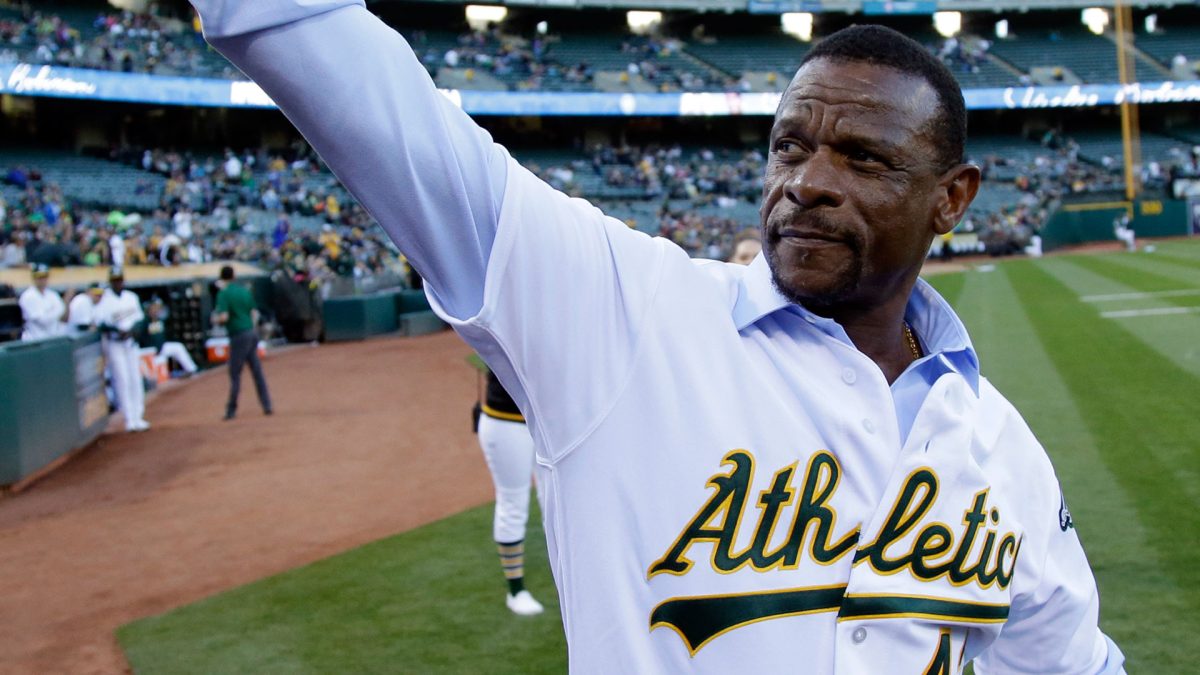The Athletics' continued existence in Oakland is down to the final strike.
On Tuesday, the Nevada Senate approved SB1, which opens up to $380 million of public funding for a Las Vegas ballpark.
On Wednesday, the Nevada Assembly passed the bill with amendments, and the Senate quickly concurred. That means the bill only awaits being signed by Gov. Joe Lombardo, who's a staunch supporter and helped push the legislation through both houses.
Stay in the game with the latest updates on your beloved Bay Area and California sports teams! Sign up here for our All Access Daily newsletter.
So, what now? Here are three things for every A’s fan to consider.
The last step has little to do with Nevada
You’ll hear this is a "done deal," which isn't entirely true. What’s left is an MLB owner vote on relocation from Oakland to Las Vegas, which will require 75 percent approval.
That final action, which could happen anytime over the next few weeks or months, comes with three distinct outcomes:
- Approval, with no exceptions
- Denial
- Approval, including a standard relocation fee
An interesting wrinkle came Wednesday, though, when California U.S. representatives Barbara Lee and Mark DeSaulnier introduced the "Moneyball Act," which would force MLB teams to reimburse the local governments and markets they leave.
Athletics
Find the latest Athletics news, highlights, analysis and more with NBC Sports Bay Area and California.
In this case, legal action could pressure MLB to maintain its anti-trust exemption, by applying a fee of possibly $300 million to the A’s relocation. Representatives from the team previously testified that financing in Las Vegas wouldn't be possible without a public contribution. It remains to be seen how (and if) they’d be able to proceed with this additional incurred and unexpected cost.
You're right: The numbers still don't add up
The A’s made a lot of unique promises to Las Vegas, Clark County and Nevada.
- An MLB ballpark with a retractable roof that sits on just a nine-acre footprint. The league's next smallest footprint would be Milwaukee's American Family Field at 11.7 acres.
- The ballpark with MLB’s smallest attendance capacity (by 5,000) somehow will be able to draw 28,000 per game every season, for 30 seasons, while never exceeding its limit of 30,000 seats, to compensate for the inevitable "off" nights.
- The (never-done-before) reliance on 30 percent of tourists to fill the ballpark, which translates into 9,000 fans per game of the total 107,000 visitors who enter Las Vegas each day. That’s 8 percent of all daily tourists at an A’s game in a city full of entertainment options.
- Long-term viability of a self-proclaimed "small-market" team, already reliant on revenue sharing, that’s relocating to the 40th overall media market in the country (also would be MLB’s smallest media market).
- One of three remaining MLB teams (along with the Chicago White Sox and the Kansas City Royals) to never award a $100 million player contract, the A’s instantly promised to fund a competitive payroll in Las Vegas -- which would cost them an additional $2 billion in the coming decade alone.
- Supply-and-demand projections based on the brief existence of professional sports for six seasons in Las Vegas, with both the Raiders and Golden Knights each still enjoying respective "honeymoon" phases.
- Repayment of bonds to Clark County, which already operates in "functional debt, that are directly reliant on the stadium’s tax district producing a high enough rate of fans and revenue (and sustained baseball success) over a 30-year span.
If these metrics were being introduced in a more traditional location, with more conservative estimates, it would be difficult for Oakland fans to have a counterargument. And while all of this might invoke an "I told you so" from Oakland to Las Vegas within the next decade alone, unfortunately, it wouldn’t matter at that point.
This isn't the fans' fault
From the alteration of the Coliseum with Mount Davis in 1995, to the dismantling of competitive A's rosters in the decades since, it’s a statement in itself that enough fans still exist, let alone can fashion a "Reverse Boycott" event, as they did Tuesday night.
It will be a small consolation, but the baseball world understands Oakland fans and how this played out over the past few years. Look around. The media entities and public figures who actively support A’s relocation are the ones who stand to directly gain from it, whether or not the project is successful.
The coming days, weeks, years and decades likely will bring feelings of sadness in Oakland. Familiar hats, shirts and jerseys likely will be destined for a cardboard box in the attic or garage, since the franchise already has declared keeping its name elsewhere. It will be a time of pain, but it shouldn't be a time for guilt.


